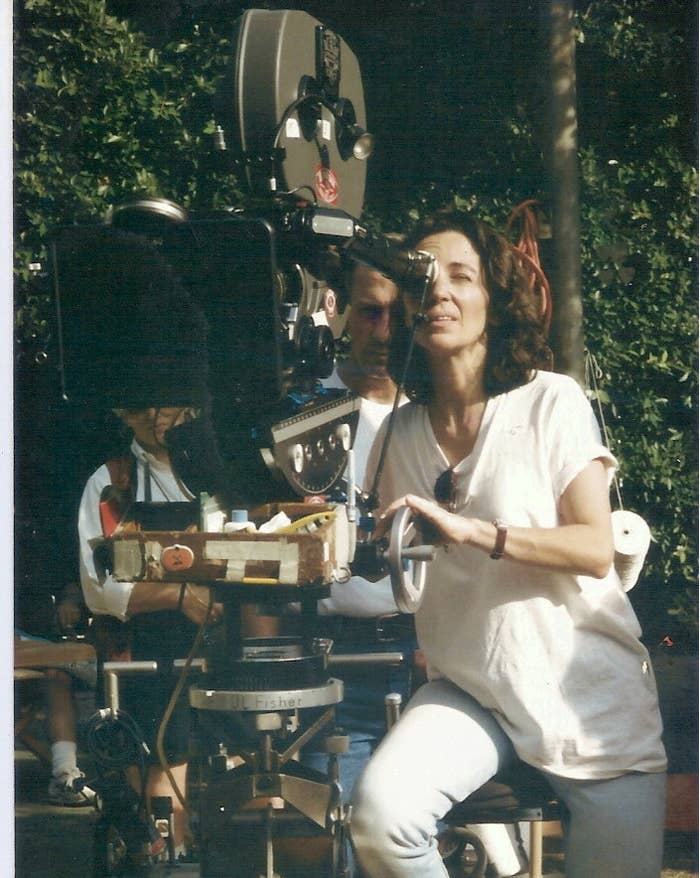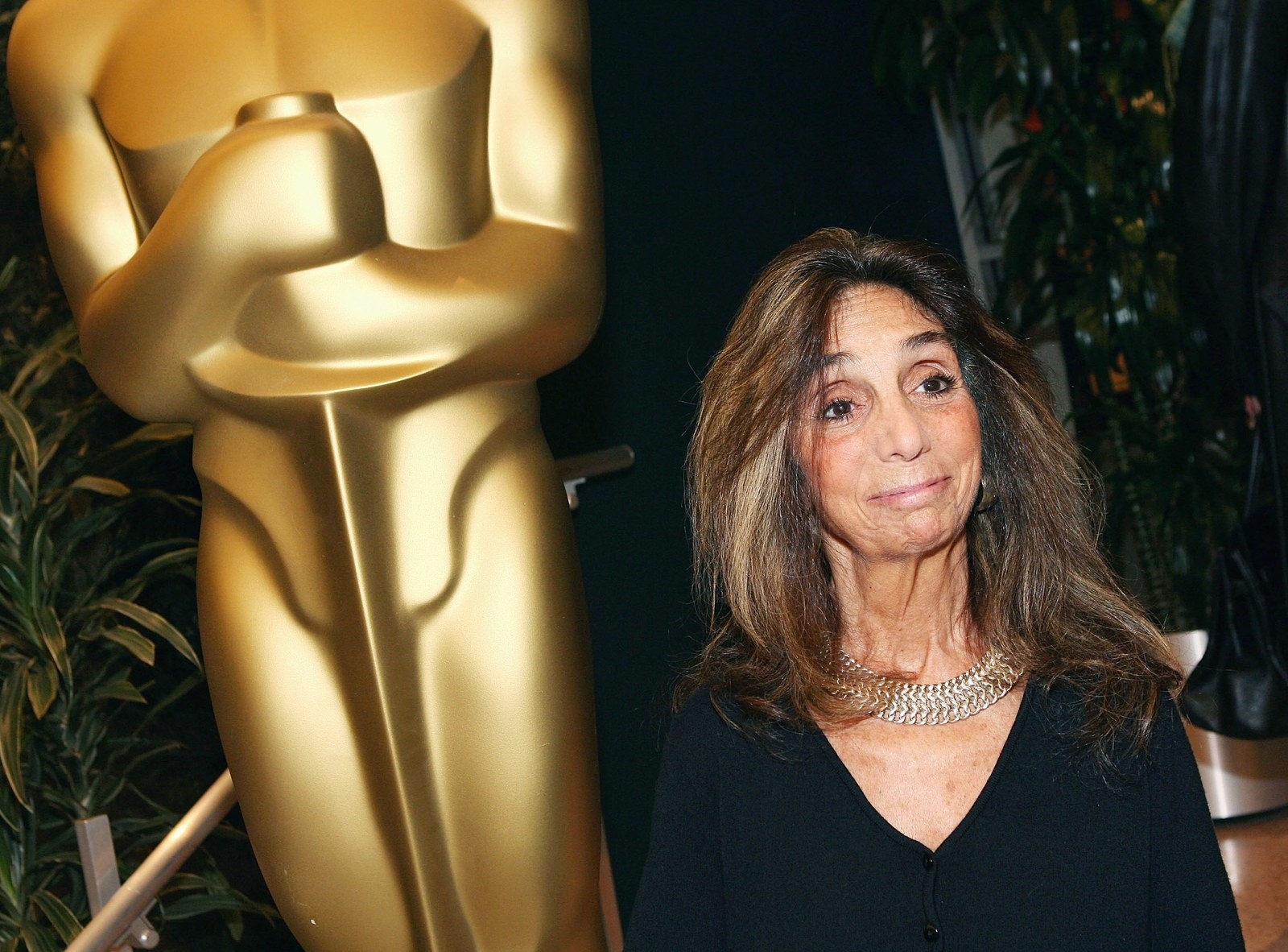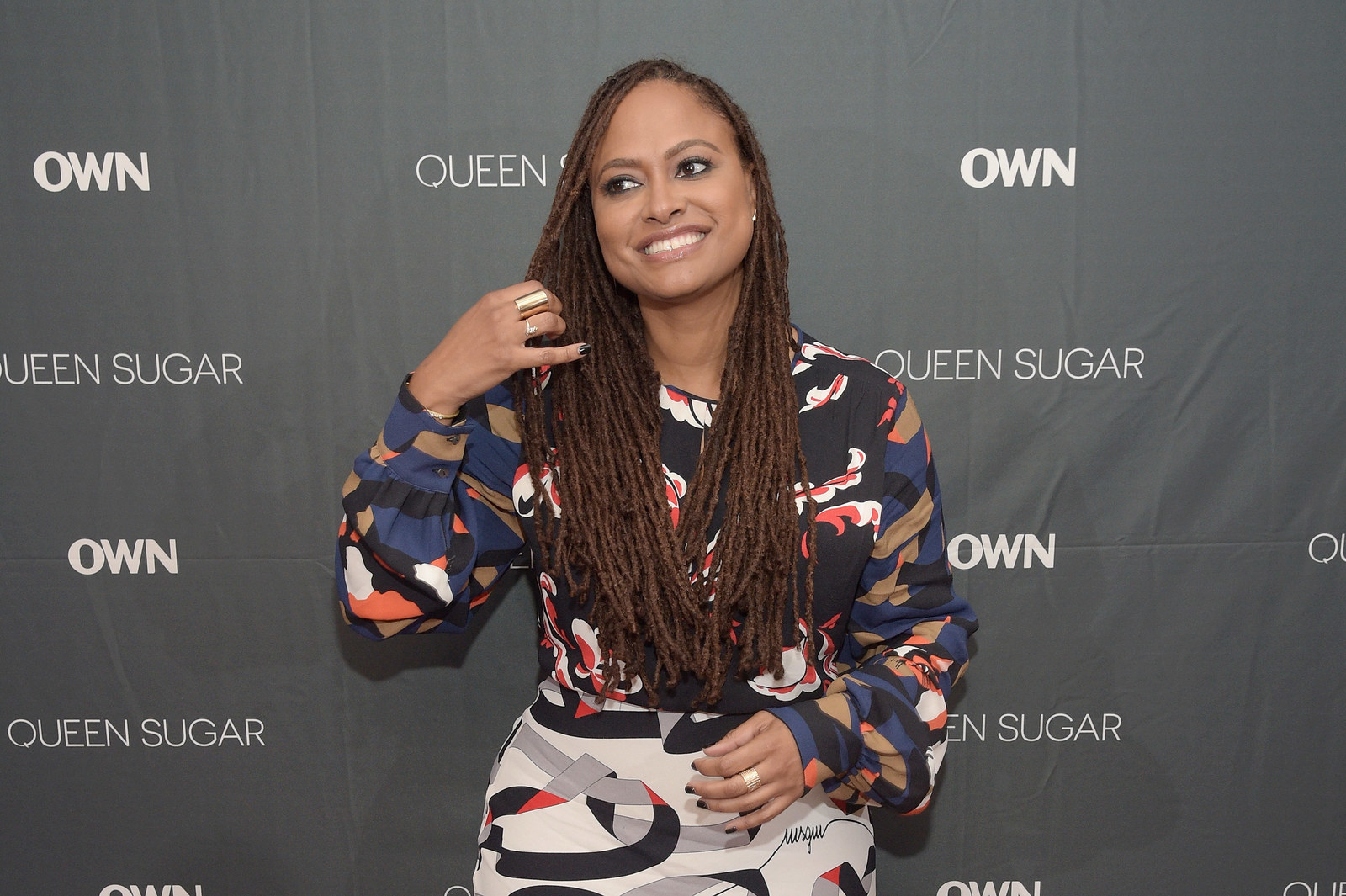
The day her 1988 short film was nominated for an Oscar was the same day Matia Karrell found out her brother Roy had been diagnosed with HIV. The revelations were jarring — almost like something from a movie. The Academy Award nod helped in getting her an agent, and Karrell started directing episodic television, helming episodes of The Wonder Years and Doogie Howser, M.D. When Roy took a turn for the worse in 1989, she moved in with him and his boyfriend, and tried to keep working.
It was fine, for a while. But one day working on set after another all-nighter in the emergency room, she fell apart. “I realized then, I can't do both,” she recalled to BuzzFeed News calmly earlier this year. “I can't take care of these people and work.” She stopped directing and cared for her brother until his death in the summer of 1993.
In the years that followed, she worked as an assistant director as she toiled over a film based on Roy’s life; the small indie feature, Behind the Red Door, finally came out in 2003, but didn’t open new doors. A few years later, unable to land other directing opportunities, she spent months working to get into a TV director shadowing program. Out of that opportunity, she directed one 2006 episode of The West Wing. She then directed episodes of a soap opera, and then entered another shadowing program, where she observed men working a job she already knew how to do.

“It was almost like, if you're gonna work here, you have to shadow first,” she said. “I went through the ABC program. And I went in there with a West Wing.” When she applied to the ABC program, she said she didn’t mention her Oscar nomination or the hours of television she’d directed in the 1990s because she worried people would see the credits as too old. The other two participants in the 2008 ABC program — both men — had directed 11-minute shorts; she’d directed a full-length Kiefer Sutherland movie. But, still, no one would hire her.
She’s not alone. Experienced women directors are penalized first for their gender, and then for the toll that bias takes on their careers; then they're penalized again if a child or a sick relative interrupts, and then they're forgotten. Karrell is part of a lost generation of women — middle-aged and accomplished directors like Zeinabu irene Davis, a Sundance 2000 alumna who pursued documentary work because there are fewer barriers to entry; or Patricia Cardoso, who was the toast of Hollywood with 2002's Real Women Have Curves; or Lynne Littman, a four-time Emmy winner whose short documentary won an Oscar in 1977. They’re women who have the experience to deliver great work but aren’t given the chance to continue to do so.
It happens in both television and film: A 2017 study from the University of Southern California's Media, Diversity, & Social Change Initiative found that female directors who made one film were significantly less likely to direct a second film than their male peers in a 10-year span. Supporting those numbers are stories from hotshot directors like Karyn Kusama and Catherine Hardwicke, who reaffirm that, even with critical buzz and box office chops, women face more obstacles than men in getting to — and staying in — the director’s chair.
And as experienced female directors languish, industry leaders have repeatedly said they’re committed to hiring more women. For instance, a full 36 years ago, the New York Times reported that “studio heads … wanted to put themselves on record for supporting the women's aims.” In 2013, the head of Sony was interested in hiring women to direct films — or at the very least Kathryn Bigelow. In December, Lucasfilm president Kathleen Kennedy said she had “every intention” of hiring a woman to helm a Star Wars film.
Best intentions aside, there’s been virtually no improvement in hiring year over year. Only 17% of television episodes were directed by women in the 2015–2016 season, barely up from 16% the year before, according to the Directors Guild of America. The guild and several academic institutions have reported that women direct less than 8% of films. As these dismally low numbers get more and more embarrassing, one might expect executives to return to the female directors who, often for very gendered reasons, were shut out of careers.
“The challenges are still the same as if you were starting all over again.”
But current hiring practices do little to approach these invisible directors. Jeanne Mau, vice president of CBS’s Diversity Initiative, ruefully explained to BuzzFeed News that producers tend to look at a candidate’s most recent credits, and so for women who have had a lull in their career, “The challenges are still the same as if you were starting all over again.”
Furthermore, BuzzFeed News cross-checked the guild’s diversity report with IMDB. The site can be unreliable, but this review suggested that, of more than 700 episodes of TV directed by women in the 2015–2016 season, two-thirds were distributed among the same 59 women — which is to say that a small pool of female directors accounts for a huge amount of gender “diversity.” A DGA spokesperson could not confirm the number, but pointed to their study from the 2013–2014 season, which shows a similar pattern. The DGA found that in the 2015–2016 season 77% of first-time directors were men, a percentage that is almost identical to the previous six seasons. These hiring patterns will never bring about gender parity.
In the face of these numbers, a class of experienced, benched women is clamoring for another turn in that rarefied canvas chair. In interviews with a dozen female directors, BuzzFeed News heard stories of being overlooked, brushed aside, and forgotten. One formerly prolific director, Rachel Feldman, found it almost impossible to get directing work again after taking two years off to care for her young children. “The line is, 'Where are the women? There aren't enough women. How do we make it 50/50?'” she asked. With no small amount of exasperation, she answered herself: “We're here.”

There’s a lot of media criticism and little industry response when it comes to inclusivity. Deadline reported last month that only one of this year’s 41 broadcast drama pilots is directed by a woman. On the subject of female directors, DGA president Paris Barclay told the Los Angeles Times in February, “It’s a question of whether the producers are really going to give [women] the same chances they give to many white male directors,” a perspective he’s reiterated in guild press releases. (The shows on which Barclay has served as an executive producer have themselves, at times, not taken many “chances”: Pitch hired several women directors, but a woman directed only one of 10 episodes of the 2015 series The Bastard Executioner, and over the four seasons Barclay produced Sons of Anarchy, the show had only two female directors.)
As Mau said, many producers have an aversion to time gaps in a potential director’s career — a knee-jerk antipathy that feeds (and is fed by) gender prejudice. Due to conscious and unconscious bias, female directors typically have more of a struggle to get work than men do, and thus may have more holes in their résumé. Women, overall, are also more likely than men to take time off to care for a child or an ill family member.
At the start of 2017, Feldman said she had gone to around 10 meetings in the previous months with producers who invariably asked why there were blanks in her work history. “Because no one would hire me because I haven't had an agent because there's a gap! Can we fix it by you hiring me?” goes Feldman’s internal response. She continued, “I feel like if I were a hip, cool young guy who had a gap because I did something interesting, there would be no gap.” Sail the world, she suggested. Have a heroin addiction. But her two major pauses in directing were due to caring for her children and caring for her dying mother.
“It’s dis-re-spect-ful to ask us to ask us to apply to a training program when we are already trained.”
Thus, for a time, shadowing programs seemed to be Feldman’s only option to get back into rotation. She applied to several official programs and she’s shadowed directors informally, but it rankles. Speaking slowly and angrily, she said, “It’s dis-re-spect-ful to ask us to ask us to apply to a training program when we are already trained.”
Producers’ distaste for career gaps hinders the effort to hire inclusively. But rethinking the gap can foster inclusivity, something Ava DuVernay has proven. She hired seven women for the first 13-episode season of her series Queen Sugar; five of the women — Tina Mabry, So Yong Kim, Kat Candler, Victoria Mahoney, and Tanya Hamilton — had never directed episodic television before but had directed acclaimed films. Many had attempted to claw their way to success, but once DuVernay handed them their first episode of TV, they all went on to direct other shows. “Diversity,” she told Vulture, “is real and possible.”
Before DuVernay gave these directors their shot, they’d faced absurd obstacles that left them underemployed (or unemployed), which in turn just made it harder to get work. Queen Sugar’s Season 1 director-producer Mabry, for instance, wrote and directed the layered intergenerational 2009 drama Mississippi Damned; as that film made the rounds on the festival circuit that year, she said potential distributors told her that because Precious was coming out in the same year, her drama about black people wouldn’t get picked up.

“I'm like, 'How can the market not bear two black dramas at once?' … It can bear multiple films that are written and directed and star white people, and are all the same genre!” Mabry told BuzzFeed News. “I'm sorry, I don't think it's gonna explode the universe. But apparently they did.” The insult was not just racial, but also gendered: At one meeting with male distributors, she said, they referred to her and her producing partner Morgan Stiff as “you girls.”
Mabry’s film all but disappeared, her semi-autobiographical passion project brushed aside as one black drama too many. Mississippi Damned “didn't open the door that we thought it would. I spent many years depressed about it,” she said. She went through a Fox writers program aimed at increasing diversity in writers rooms, but couldn’t get staffed. In the weeks before DuVernay called her in October 2015 to offer her a job as a producer on Queen Sugar, Mabry said she was convinced her career was over.
Like Mabry, Aurora Guerrero was contacted directly by DuVernay after a years-long career stall. Guerrero wrote and directed Mosquita y Mari, a delicate film about an unspoken lesbian attraction between two girls growing up in Los Angeles. The film was accepted into the 2012 Sundance Film Festival, but that didn’t help her get an agent or funding for her next project. She was in a rut in 2015 when she had a phone conversation with DuVernay, who offered her the gig. “I was like, 'What the fuuuuck. Serious? Holy shit!'” Guerrero said. She recalled telling DuVernay, “Television? Wow, I have no experience!” But DuVernay said that she did have experience: her affecting and visually striking film. Suddenly inclusive hiring was simple.
In a typically female dilemma, Guerrero told DuVernay that she couldn’t direct an episode in the first season because she was the primary caretaker of her baby at the time. However, DuVernay came back with another offer in the second season, just like she said she would. “It wasn't like she was holding it against me, or judging me for saying, 'Hey, right now, my priority is my child, but I hope this opportunity comes again.' It didn't backfire like it backfires on a lot of women who have shared that and been judged for that.”
The overall numbers in television aren’t going to change because of one series, but Queen Sugar could be a model for other shows. With a more flexible idea of “relevant experience” and by understanding that career gaps should not disqualify candidates, DuVernay managed to hire an all-female lineup of directors for two seasons in a row. On the flip side, when assumptions about relevant experience and career gaps go unchallenged, it’s often women (and especially women of color) who are at a disadvantage.
"They look at my résumé, and they say, 'What are you doing here shadowing?'"
Last spring, DGA Quarterly described “a reluctance” to put the fate of “multimillion dollar episodes” and creative decision making “into the hands of someone who has never been tested in that genre.” Peculiarly, the magazine did not account for the already tested mid-career women who are being shut out of the industry. Karrell, the Oscar nominee who’s directed hours of television, said that when she’s applied to shadowing programs, “They look at my résumé, and they say, 'What are you doing here shadowing?'” She shrugged. It’s a trap.
Mabry summed up a potential solution best: “You've gotta be in the position to have the power, and then you've gotta have the...” she trailed off for a moment. “It's not balls. You've gotta have the strong vagina.”
